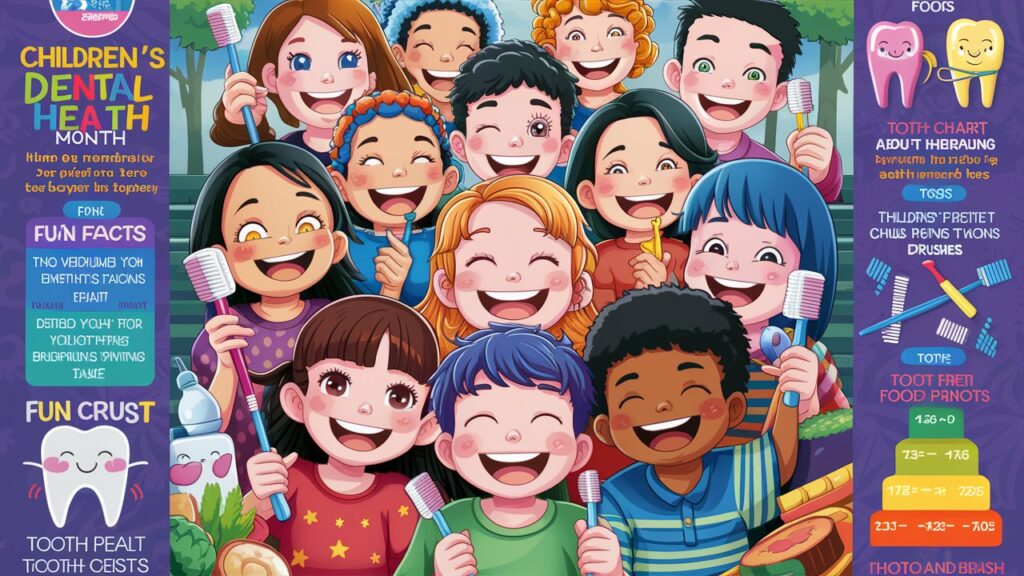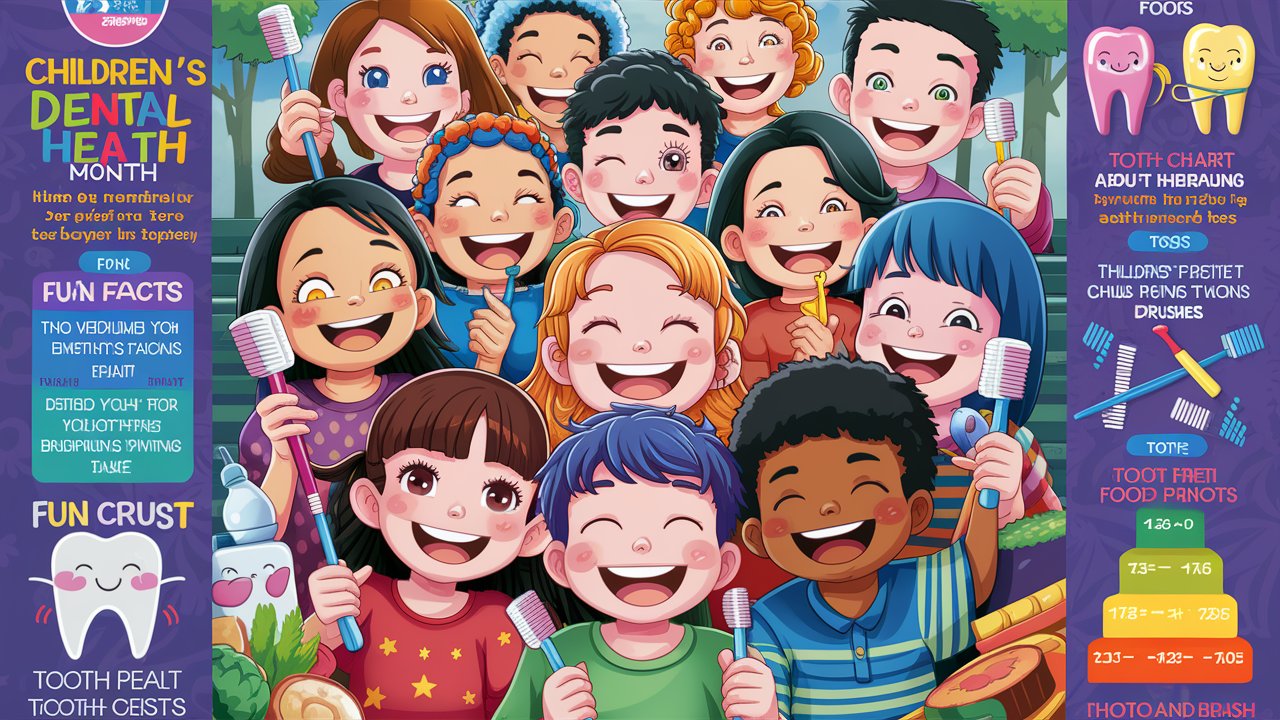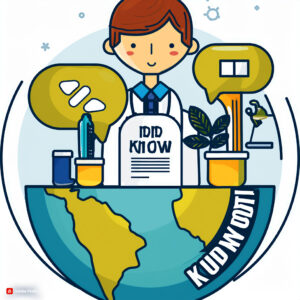
Introduction
Dental wellbeing is a vital angle of in general well-being, particularly for children. Creating great dental propensities early in life can lead to a lifetime of solid teeth and gums. National Children’s Dental Wellbeing Month, celebrated each February, is committed to advancing these fundamental propensities through fun and locks in exercises. This article will dig into the history of this critical recognition and share a few fun realities and tips to offer assistance children keep up a shinning and solid smile.
The History of Children’s Dental Wellbeing Month
National Children’s Dental Wellbeing Month has a wealthy history that reflects the developing mindfulness of the significance of verbal wellbeing for children.
How It All Began
The beginnings of Children’s Dental Wellbeing Month can be followed back to the early 20th century.
Early Endeavors to Advance Dental Health
The to begin with national recognition of Children’s Dental Wellbeing Day was held on February 8, 1949. This one-day occasion was a noteworthy step toward raising mindfulness around the significance of verbal wellbeing for children. The occasion was well-received, driving to its development over the years.
The ADA’s Part in Advancing Verbal Health
The American Dental Affiliation (ADA) played a urgent part in extending this occasion into a week-long celebration in 1955. By 1981, the occasion had developed into a month-long recognition, reflecting the expanding significance put on children’s dental wellbeing. Nowadays, the ADA proceeds to initiate this activity, giving assets and back for dental experts and teachers over the country.
Evolution Over the Years
As Children’s Dental Wellbeing Month advanced, so did the assortment of exercises and instructive materials available.
Expansion of Exercises and Mindfulness Campaigns
Over the a long time, the ADA has presented different campaigns to lock in children and their guardians. From instructive brochures to intuitively diversions and exercises, these assets make learning almost dental wellbeing fun and available. Schools, dental workplaces, and community centers regularly take an interest in these campaigns, making a difference to spread the message distant and wide.
The Affect on Children’s Verbal Health
Thanks to the endeavors of the ADA and other organizations, there has been a critical change in children’s verbal wellbeing. Expanded mindfulness has driven to superior preventive care, counting customary dental check-ups, legitimate brushing and flossing propensities, and the utilize of fluoride to ensure teeth from decay.
Fun Actualities Almost Children’s Teeth
Children’s teeth are interesting and special, with numerous fun truths that can capture a child’s intrigued and offer assistance them get it the significance of taking care of their teeth.
How Numerous Teeth Do Children Have?
Children’s teeth, regularly alluded to as infant teeth or essential teeth, have their claim interesting set of characteristics.
The Handle of Tooth Eruption
A child’s to begin with tooth ordinarily ejects around six months of age, in spite of the fact that it can shift. By the age of three, most children have a full set of 20 essential teeth. These teeth play a imperative part in making a difference children chew nourishment, talk clearly, and keep up the space required for lasting teeth to create properly.
Why Child Teeth Are Important
While child teeth are transitory, they are vital for a child’s improvement. They offer assistance with appropriate chewing, discourse advancement, and the arrangement of lasting teeth. Keeping up solid child teeth can avoid early misfortune, which seem lead to issues like misaligned teeth or trouble chewing.
Interesting Truths Around Tooth Decay
Tooth rot is one of the most common childhood infections, but it’s too one of the most preventable.
How Common Is Tooth Rot in Children?
Tooth rot, moreover known as dental caries or cavities, influences almost 1 in 5 children matured 5 to 11 a long time. In spite of being exceedingly preventable, it remains a common issue, particularly in children who expend sugary nourishments and refreshments and have destitute verbal cleanliness habits.
Early Signs of Tooth Decay
Early signs of tooth rot in children incorporate white spots on the teeth, affectability to hot or cold nourishments, and obvious gaps in the teeth. Normal dental visits can offer assistance capture these signs early and avoid the movement of decay.
The Part of Fluoride in Securing Teeth
Fluoride is a mineral that plays a key part in keeping up dental wellbeing, especially in children.
What Is Fluoride?
Fluoride is a normal mineral found in water and different nourishments. It makes a difference reinforce the finish, the external layer of teeth, making it more safe to corrosive assaults that cause cavities.
How Fluoride Avoids Cavities
Fluoride works by remineralizing teeth, turning around early signs of rot, and avoiding the arrangement of unused cavities. Numerous communities include fluoride to their water supply, and dental practitioners frequently prescribe fluoride toothpaste and medications for children to guarantee their teeth stay solid and healthy.
Tips for Keeping Children’s Teeth Healthy
Maintaining great verbal cleanliness is basic for avoiding tooth rot and guaranteeing a lifetime of sound teeth. Here are a few viable tips to keep your child’s teeth in beat shape.
Importance of Brushing and Flossing
Brushing and flossing are the foundations of great verbal cleanliness, but getting children to do it legitimately can be a challenge.
How to Make Brushing Fun
Turn brushing into a fun action by utilizing toothbrushes with their favorite characters, playing their favorite tune whereas they brush, or utilizing apps that make brushing a amusement. It’s prescribed that children brush their teeth twice a day for two minutes each time.
Flossing Tips for Kids
Flossing can be precarious for small hands, but it’s significant for evacuating nourishment particles and plaque from between the teeth where a toothbrush can’t reach. Utilizing colorful floss picks or flossers planned for kids can make the prepare simpler and more enjoyable.
The Part of Eat less in Verbal Health
What your child eats has a critical affect on their verbal wellbeing. A adjusted slim down not as it were bolsters in general wellbeing but moreover makes a difference in keeping up solid and solid teeth.
Foods That Fortify Teeth
Certain nourishments are especially useful for dental wellbeing. Dairy items like drain, cheese, and yogurt are wealthy in calcium, which is fundamental for building solid teeth and bones. Crunchy natural products and vegetables like apples, carrots, and celery offer assistance clean the teeth actually and fortify spit generation, which makes a difference neutralize acids in the mouth. Verdant greens such as spinach and kale are tall in vitamins and minerals, counting calcium and folic corrosive, which contribute to solid gums and teeth.
Foods to Avoid
On the flip side, certain nourishments can hurt your child’s teeth. Sugary snacks and drinks are the essential offenders behind tooth rot. Microbes in the mouth nourish on sugar, creating corrosive that disintegrates tooth finish. Sticky nourishments like sweet and dried natural products can cling to the teeth, giving a breeding ground for microbes. It’s too shrewd to restrain acidic nourishments and drinks, such as citrus natural products and pop, which can wear absent finish over time.
Regular Dental Check-Ups
Regular visits to the dental specialist are crucial for keeping up verbal wellbeing and catching any potential issues early.
When to Begin Dental Visits
The American Foundation of Pediatric Dentistry (AAPD) suggests that children visit the dental practitioner by their to begin with birthday or inside six months of their to begin with tooth ejecting. Early dental visits offer assistance familiarize your child with the dentist’s office and set up a establishment for great verbal health.
What to Anticipate Amid a Dental Check-Up
During a dental check-up, the dental practitioner will look at your child’s teeth, gums, and mouth for signs of rot, misalignment, or other issues. They may too clean your child’s teeth and give fluoride medicines. Customary check-ups, in a perfect world each six months, permit the dental practitioner to screen your child’s verbal wellbeing and address any concerns some time recently they gotten to be genuine problems.
Educational Exercises for Children’s Dental Wellbeing Month
One of the best ways to instruct children approximately dental wellbeing is through fun and locks in exercises. These exercises can make learning approximately verbal cleanliness pleasant and memorable.
Fun Dental Wellbeing Crafts
Crafting is a awesome way to offer assistance children learn around dental wellbeing whereas communicating their creativity.
Tooth Pixie Crafts
The Tooth Pixie is a adored figure in numerous children’s lives. Making Tooth Pixie creates, such as making a extraordinary tooth pad or enhancing a little box to hold misplaced teeth, can be a fun way to fortify the significance of taking care of their teeth.
Create Your Possess Toothbrush Holder
Another fun create thought is to let your child plan and make their claim toothbrush holder. This personalized holder can empower them to see forward to brushing their teeth each day. Utilize materials like clay, paint, or reused things to make a one of a kind holder that reflects your child’s personality.
Games and Astounds to Learn Almost Teeth
Interactive recreations and confuses are great devices for instructing children almost the significance of dental health.
Crossword Puzzles
Create or discover dental-themed crossword astounds that challenge your child to learn and keep in mind key dental terms. This action not as it were improves their lexicon but moreover fortifies imperative dental wellbeing concepts.
Dental Wellbeing Bingo
Dental Wellbeing Bingo is a fun and instructive diversion where children check off dental-related pictures on their Bingo cards as they learn approximately them. This amusement can be played in a classroom setting or at domestic, making learning approximately dental wellbeing an energizing experience.
Storytime with Dental Wellbeing Books
Reading is another capable apparatus for instructing children approximately dental wellbeing. There are numerous books outlined to teach children on the point in an locks in and age-appropriate way.
Recommended Books Around Teeth
Books like “The Tooth Book” by Dr. Seuss and “Brush Your Teeth, It would be ideal if you” by Leslie McGuire are idealize for youthful perusers. These books utilize rhymes, colorful outlines, and basic dialect to educate children around the significance of brushing, flossing, and going to the dentist.
Interactive Narrating Ideas
Take storytime a step advance by consolidating intelligently components. For illustration, after perusing a book around brushing, you might have your child hone brushing a toy’s teeth. This hands-on movement fortifies what they’ve learned and makes the encounter more engaging.
The Significance of Parental Involvement
Parents play a vital part in forming their children’s dental propensities. By being effectively included, guardians can set their children up for a lifetime of great verbal health.
How Guardians Can Back Verbal Health
Supporting your child’s verbal wellbeing goes past reminding them to brush their teeth. It includes setting a great case and making dental care a positive experience.
Leading by Example
Children regularly copy their guardians, so by practicing great verbal cleanliness yourself, you can energize your child to do the same. Brush and floss your teeth nearby your child to appear them how it’s done and make it a fun, shared activity.
Making Dental Wellbeing a Family Activity
Turn dental care into a family issue by setting objectives and celebrating turning points, such as a week of brushing without lost a day. You can too make a remunerate framework where children win stickers or little prizes for reliable brushing and flossing.
Creating a Positive Dental Experience
For numerous children, going to the dental specialist can be a source of uneasiness. Be that as it may, with the right approach, guardians can offer assistance make a positive and stress-free dental experience.
Choosing the Right Dental specialist for Your Child
Finding a dental practitioner who specializes in pediatric dentistry can make a critical distinction. Pediatric dental specialists are prepared to work with children and make a inviting, inviting environment. They frequently have workplaces planned to be fun and comforting for youthful patients, which can offer assistance diminish any fear or uneasiness your child might have.
Tips for a Fear-Free Dental Visit
To offer assistance ease your child’s fears, conversation to them around what to anticipate amid a dental visit. Perusing books or observing recordings approximately going to the dental specialist can too plan them for the involvement. Bringing a favorite toy or cover to the arrangement can give consolation, and advertising laud and a little remunerate after the visit can offer assistance make positive affiliations with dental care.
Conclusion
National Children’s Dental Wellbeing Month is an great opportunity to center on the significance of verbal wellbeing for children. By understanding the importance of great dental propensities and joining fun exercises, guardians and teachers can make learning approximately dental wellbeing an pleasant encounter for kids. From brushing and flossing to normal dental check-ups, each step taken towards keeping up sound teeth will advantage your child’s in general well-being. So, take this month as an opportunity to instill sound propensities that will final a lifetime and celebrate the delight of keeping those magnificent whites sparkling shinning!




